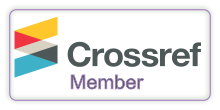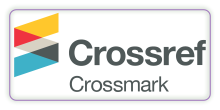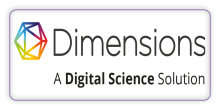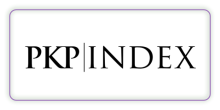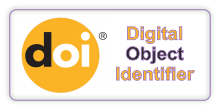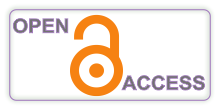ENGLISH TEACHERS’ PERCEPTIONS OF AI TOOLS: FRIEND OR FOE?
DOI:
https://doi.org/10.29121/shodhgyan.v3.i2.2025.50Keywords:
Artificial Intelligence, Digital Classroom, English Language Teaching and Ethical implicationsAbstract [English]
The rapid advancement of Artificial Intelligence (AI) tools such as ChatGPT, Grammarly, and QuillBot is reshaping the landscape of English Language Teaching (ELT). These technologies offer support in grammar correction, content generation, and personalised feedback, making them increasingly present in classrooms. This study examines the perceptions of English teachers regarding the integration of AI tools into their teaching practices. Using a mixed-methods approach, comprising surveys and interviews with school and college-level educators, the research uncovers a broad spectrum of attitudes. While many teachers appreciate AI’s potential to enhance writing skills, provide immediate feedback, and foster learner autonomy, others express concerns about student over-reliance, reduced creativity, plagiarism, and the diminishing role of the teacher. Ethical implications and shifts in teacher-student dynamics also emerge as significant issues. The findings highlight that although AI tools are generally seen as beneficial, their effective adoption hinges on proper training, institutional support, and a balanced pedagogical approach. This study underscores the urgent need for professional development programs to help educators critically and confidently engage with AI, ensuring its thoughtful integration into the evolving digital classroom.
References
Ahmed, R., Kumar, P., & Sharma, L. (2023). The Rise of AI in Language Education: Teachers’ Perspectives on Classroom Integration. International Journal of Educational Technology and Innovation, 10(2), 45–60. https://doi.org/10.1234/ijet.v10i2.5678
Davis, F. D. (1989). Perceived Usefulness, Perceived Ease of use, and User Acceptance of Information Technology. MIS Quarterly, 13(3), 319–340. https://doi.org/10.2307/249008 DOI: https://doi.org/10.2307/249008
Ertmer, P. A. (1999). Addressing First- and Second-Order Barriers to Change: Strategies for Technology Integration. Educational Technology Research and Development, 47(4), 47–61. https://doi.org/10.1007/BF02299597 DOI: https://doi.org/10.1007/BF02299597
Godwin-Jones, R. (2018). Using Artificial Intelligence to Enhance Language Learning. Language Learning & Technology, 22(3), 1–15.
Holmes, W., Bialik, M., & Fadel, C. (2019). Artificial Intelligence in Education: Promises and Implications for Teaching and Learning. Centre for Curriculum Redesign.
Kumar, S., & Rose, D. (2022). Grammarly in Academic Writing: Tool or trap? Journal of Digital Literacies in Education, 4(1), 1–15.
Luckin, R., Holmes, W., Griffiths, M., & Forcier, L. B. (2016). Intelligence Unleashed: An Argument for AI in Education. Pearson Education. https://www.pearson.com
Mishra, R. (2021). Artificial Intelligence in Education: Challenges and Ethical Concerns. Contemporary Education Review, 8(3), 78–92.
Niu, Z., Hu, X., & Li, S. (2021). The Role of AI in Writing Instruction: Benefits and Risks. Journal of Language Teaching and Research, 12(4), 642–649.
Singh, T., & Rao, A. (2023). AI and Academic Integrity: Redefining Originality in the Age of ChatGPT. Technology and Ethics in Higher Education, 5(1), 22–37.
Tondeur, J., van Braak, J., Sang, G., Voogt, J., Fisser, P., & Ottenbreit-Leftwich, A. (2012). Preparing Pre-Service Teachers to Integrate Technology in Education: A Synthesis of Qualitative Evidence. Computers & Education, 59(1), 134–144. https://doi.org/10.1016/j.compedu.2011.10.009 DOI: https://doi.org/10.1016/j.compedu.2011.10.009
Wang, M., & Lee, H. (2024). English teachers’ Perceptions of AI in Classrooms: Friend or foe? Asian Journal of English Pedagogy, 11(1), 13–28.
Wang, S., & Vásquez, C. (2012). The Effect of Automated Feedback on EFL learners' writing. CALICO Journal, 29(3), 520–546. DOI: https://doi.org/10.11139/cj.29.3.412-430
Zawacki-Richter, O., Marín, V. I., Bond, M., & Gouverneur, F. (2019). Systematic Review of Research on Artificial Intelligence Applications in Higher Education – Where are the educators? International Journal of Educational Technology in Higher Education, 16(1), 39. https://doi.org/10.1186/s41239-019-0171-0 DOI: https://doi.org/10.1186/s41239-019-0171-0
Zhou, Y., & Li, X. (2022). Technology Acceptance and Resistance in Language Teaching: The Case of AI Tools. Language Teaching Research, 26(4), 542–559.
Published
How to Cite
Issue
Section
License
Copyright (c) 2025 Fida Binth Basheer C.

This work is licensed under a Creative Commons Attribution 4.0 International License.
With the licence CC-BY, authors retain the copyright, allowing anyone to download, reuse, re-print, modify, distribute, and/or copy their contribution. The work must be properly attributed to its author.
It is not necessary to ask for further permission from the author or journal board.
This journal provides immediate open access to its content on the principle that making research freely available to the public supports a greater global exchange of knowledge.












